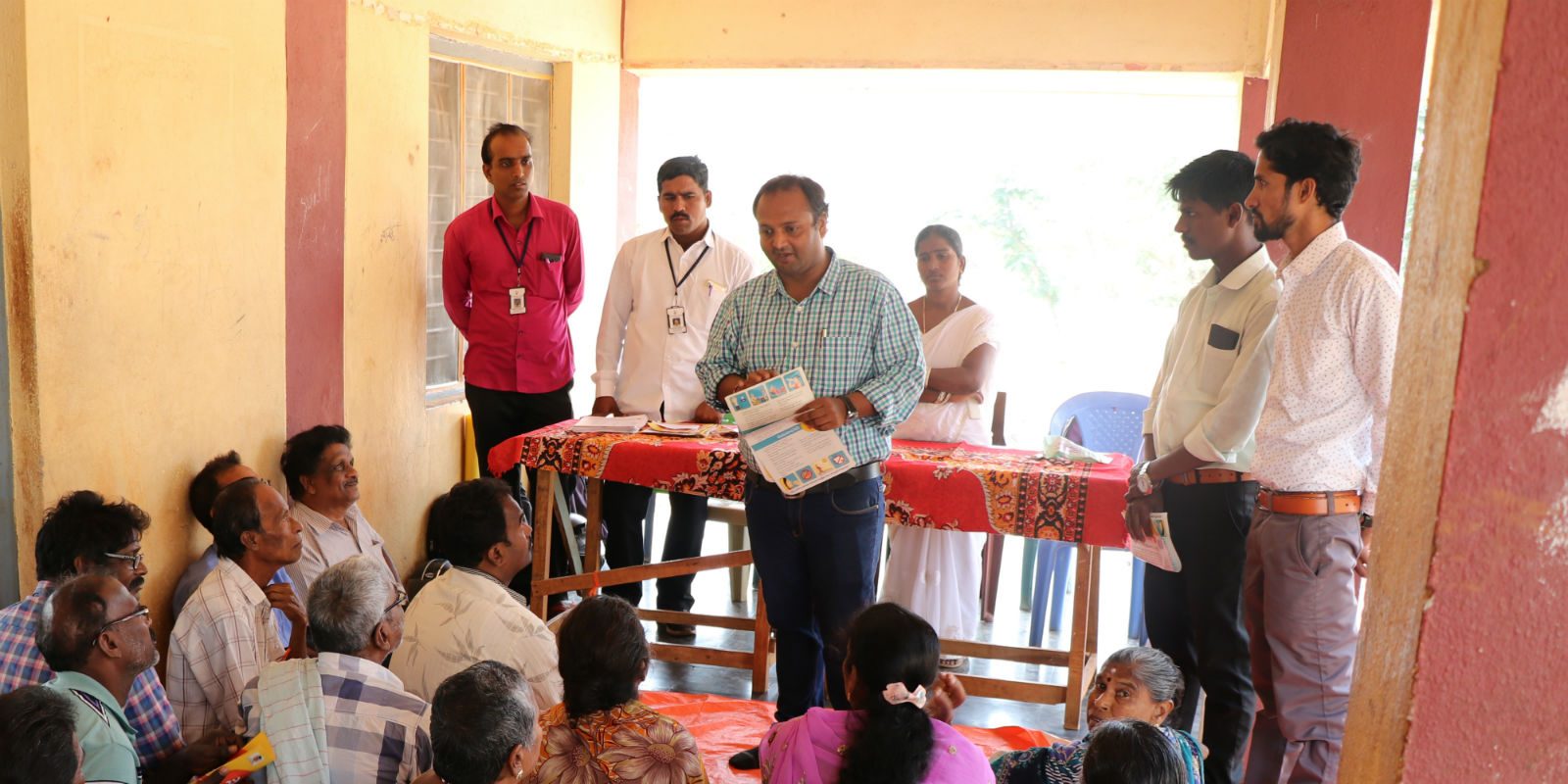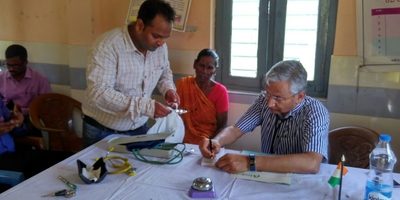
Meet Balaji Gummidi, Senior Project Manager, STOP CKDu Project
Q. Tell us a bit about your professional background?
I carried out my studies in India, at NTR University of health science, right from the early days of my undergraduate studies I was fascinated by a career in a field that involves research and epidemiological studies. This, urged me to step my career in public health aspect and I completed my Masters of Public Health from Jodhpur National University, India in Sept 2012. After my masters I joined as Research Fellow and worked in large scale community based non communicable diseases prevention and management programs. It provide me a platform to start a series of discussions and working with pioneers in the field of (NCDs) and public health scientists and working under their guidance helping to gain hands on experience in handling a comprehensive intervention program. Since moving to the George Institute, I have been working in public health sector for 7 years and my work focuses on health system strengthening and epidemiology of chronic disease.
Q. What inspires you in the work you do and why?
It was an easy decision for me to come to The George Institute, because of its International presence with a focus on implementation of evidence based research activities. The institute also attracted me due to its commitment to translating research work into health guidelines and policies.
Q. What are you currently working on at TGI?
I am a Senior Project Manager at George Institute, India, working for STOP CKDu project, this study aims to identify root causes of kidney disease of unknown origin, and suggest remediable measures in the community. Undertaking a new project named “HEAL CKDu” and objective of the study is to evaluate the role of heat stress in the development of kidney injury this study will pave the path for exploring the relationship between heat stress and CKD in all the high burden populations in India.
Q. Do you have any other professional interests apart from CKD?
My wife is a professional bakery and confectionery chef, we had a small start-up at our home. I dedicate some weekend time in helping her.
Q. What is a recent highlight?
Although my work takes me to the field, I am a proud recipient of many research scholarships.
- Fellowship awarded by Netherlands Institute for Health Sciences (NIHES) for attending Erasmus Summer Programme modules offered under “Research Training in Public Health” at Rotterdam, Netherlands in 2017
- Fellowship awarded by International Diabetes Epidemiology Group (IDEG) for attending 15th Symposium of the International Diabetes Epidemiology Group December 8-10, 2017 and epidemiological workshop in Abu Dhabi, United Arab Emirates.
- Fellowship awarded by Netherlands Fellowship program (NFP) for attending “Geo-Health: Advanced Geographic Information System Techniques in Health Applications, Using a Blended Learning Approach”.
- Scholarship awarded for attending all three modules of National Structured Operational Research and Training IniTiative (SORT IT) conducting The Union and Médicins Sans Frontières (MSF) 2017-2018.
- Fellowship awarded by American Thoracic Society (ATS) and completed all “three Levels” of MECOR (Methods in Epidemiologic, Clinical and Operations Research)” training program on 2017-2020.
- Application shortlisted for attending summer course on “Using GIS for Global Health (GIS)” at KIT Royal Tropical Institute, Netherland on July 2020.
Q. How your work helps to improve the health of people?
High prevalence of chronic kidney disease (CKD) not associated with known risk factors, dubbed Uddanam nephropathy, and has been reported from coastal districts of Andhra Pradesh, India. Despite the reported high burden of CKD, systematic estimation of the prevalence of CKD or its causes in this region has not been undertaken. Since the cause of kidney disease has important bearing on outcomes, and patients with CKDu are likely to behave significantly differently compared to those with other etiologies, it is important to understand the factors that drive progression and outcomes in this condition. My work with George Institute help me determine association with known and novel risk factors, which provides solution for this humanitarian disaster and support people for better life and health living.


